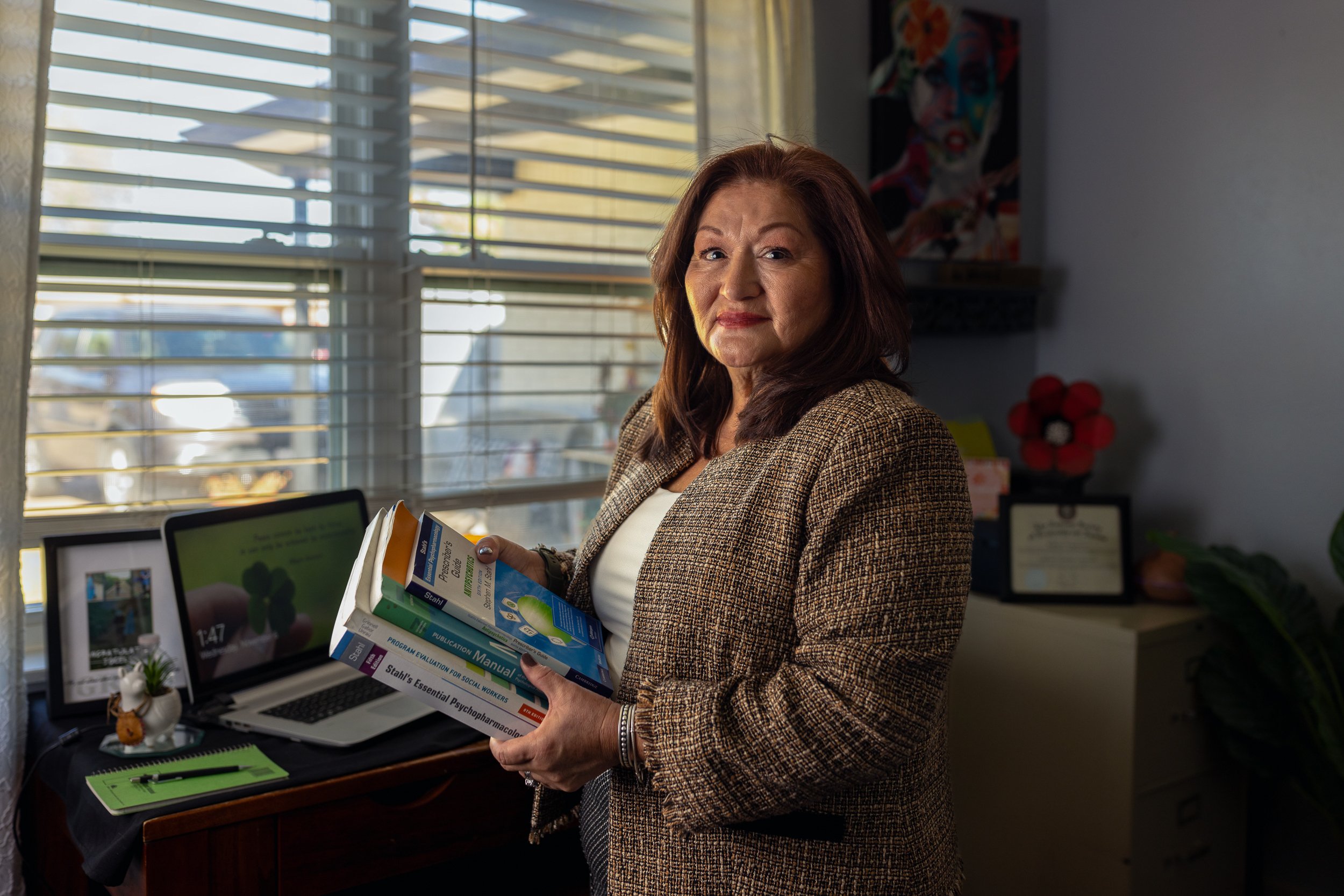Loan-Shark Attack at the Lege!!!
The payday loan industry poured its profits into killing any meaningful reform.

It’s hardly a shocker that the lobby has an inordinate amount of influence at the state Capitol. However, even the most jaded among us should blanch at the performance of the payday and auto-title loan industry this session. Faced with the possibility of reform, these so-called “credit service organizations” (CSO) poured their considerable profits into short-circuiting any measure that would affect their bottom-line.
And it worked.
The church groups, the consumer advocates, law enforcement., Tom friggin’ Craddick, and the payday victims themselves – nobody else mattered too much. True, two bills imposing a modicum of government oversight are on the governor’s desk but they’re pale shadows of what’s needed to eliminate predatory practices. So give credit (pun intended) to the payday industry: Their investment – TPJ figures they spent nearly $1.4 million in the last election cycle – paid off big time.
Powerful lawmakers, such as state Sen. John Carona (R-Dallas), acknowledge this fact openly. As Carona told the subscription-only Quorum Report in May:
“It is one of the most heavily lobbied bills … that I’ve ever seen down here,” Carona observed.
“The industry literally has hired every major lobbyist in this town to protect their interests. That in itself is troublesome to me, because it tells you just how much money is being made through this industry and through this type of lending.”
Carona was reduced to wagging his finger at the payday industry.
“This industry needs to be on its best behavior for the next two years,” he said. “If the industry is intent on hiding behind an army of lobbyists, they may find that those of us who understand that the industry has a place in the market may not be so understanding next time.”
Throughout the legislative process, the payday boys operated as a sort-of invisible prime mover, rarely seen but acting at key moments to block reform.
Early in the session, they made sure a bipartisan effort to cap interest rates, spearheaded by that known liberal Tom Craddick, died in committee.
Craddick’s proposition was hardly radical. Basically, he and the others wanted to close a loophole in the law that allows payday and auto-title lenders to operate as if they were credit-repair companies and escape Texas’ anti-usury laws.
But Rep. Vicki Truitt, a conservative Republican who chairs the House Pensions, Investments and Financial Services Committee, put the kibosh on that effort after giving the legislation a perfunctory hearing. Truitt’s approach was much, much milder. She forced the consumer organizations and lobbyists for the industry into a 40-hour mediation process.
The idea was to get the lions to lie down the lambs and reach a negotiated consensus. What emerged was a trio of bills – HB 2592, 2593, and 2594 – that preserved the loophole but together helped bring the industry out of the shadows and imposed some very light regulation.
The bill with the most teeth, HB 2593, addressed the “cycle of debt” by imposing some limits on how many times a consumer could roll over their loan and be stuck with new fees.
However, HB 2593 never made it to the House floor, a legislative death that Carona and consumer advocates attribute to industry muscle.
“The core pieces that had been part of our movement that we had built were off the table … because of tags from these lenders,” said Ann Baddour, an attorney and payday-loan expert with Texas Appleseed.
When the other two bills finally came up for debate in the House chamber in mid-May, one of the CSOs’ best friends pounced. Gary Elkins is the owner of 12 payday stores (Big City Finance! Freeway Finance! Cash Station!) who also happens to be a Republican lawmaker from Houston.

Although Truitt had invited him to be a part of the negotiation process early in the session, Elkins declined. As Elkins told Truitt on the floor: “I told you that this was an industry that i was involved in, that I had a conflict of interest… i also informed you at that time that i would not talk to you about this bill again.”
Yet here he was trying to kill or weaken HB 2592 and HB 2594. In the process, Elkins gave what has to be one of the most shameless performances ever seen on the House floor. He declared himself the father of the modern CSO business model and bragged that he was “not ashamed of what I do.”
“This isn’t about my business,” Elkins declared. “This is about government regulation.” Yet at one point Elkins offered an amendment that would have blocked pawnshops, regulated lenders and check-cashing outfits from offering payday loans – a transparent play for market share. (The amendment was withdrawn.)
As Elkins shilled, Truitt reacted with thinly-disguised disgust. “Mr. Elkins, do you know the meaning of the term conflict of interest?”
Later: “I have to say I’m a little surprised you’d use your elected office to preserve your business to the detriment of the people of Texas.”
Although Elkins failed to prevent the two bills from passing the House, he and his friends successfully kept them from being strengthened in the Senate, according to Carona.
Here’s Quorum Report on that count:
Carona told QR Saturday that it was crucial to prevent unfriendly amendments so as not to upset the détente he and Truitt had reached with the industry. They announced Thursday that the industry had agreed not to oppose the two bills going forward. Carona told his colleagues today that amending the bills would ensure their defeat in the House.
Wouldn’t it be something if citizens had that sort-of veto power? To kill a bill by merely threatening opposition? Is this what free-market conservatives mean when they talk about the invisible hand?
And in the end, Elkins and the industry may get the last laugh.
Not only did they largely preserve the Wild West nature of payday and auto-title lending in Texas, they may have succeeded in protecting one of their latest predatory products – the installment loan. Language added in the Senate to HB 2594 could provide legal cover to CSOs offering such loans and push regulated lenders into the unregulated marker, consumer advocates say.
An installment loan is basically a payday loan with a fixed number of rollovers, each one carrying a new round of fees. The Cash Store, for example, offers an installment loan with 10 rollovers – each carrying fees – and an effective APR of over 611 percent. On a $300 loan, you could pay $472 in interest and fees. And that’s if you pay it back on the schedule.
The installment loan also allows payday stores to skirt a federal law that makes it illegal to charge military personnel or their families more than 36 percent APR on certain short-term loans. But the law only applies to loans of 90 days or less; installment loans, such as Cash Store’s 140-day product, have longer terms. And they’re apparently being marketed explicitly to military personnel.
Consumer advocates say that installment loans of the type offered by CSOs exist in a legal gray area.
“There is a question whether this would be legal under the current scheme,” said Baddour. “It’s not a product that’s been addressed in any of the litigation.”
Currently, many lenders offering installment loans operate under the regulatory umbrella of the Office of Consumer Credit Commissioner. They abide by anti-usury laws and all the protections of Section 342 of the Texas Finance Code. The language in HB 2594, however, could legitimize the unregulated installment payday loan as a way of doing business.
“And then it can become the status quo for all consumer lending – that’s a real fear,” said Baddour. “Charging five times the interest rate would be five times as profitable.”
That possibility – and other changes to the legislation – led Baddour to switch her stance on the legislation from “in favor” to “neutral.”
“Personally I felt like we had reached an emperor has no clothes moment,” she said. “I personally had to tell the truth. That is, what we were ending up with was very far from where we started and didnt address any of the real reasons why we were there.”


